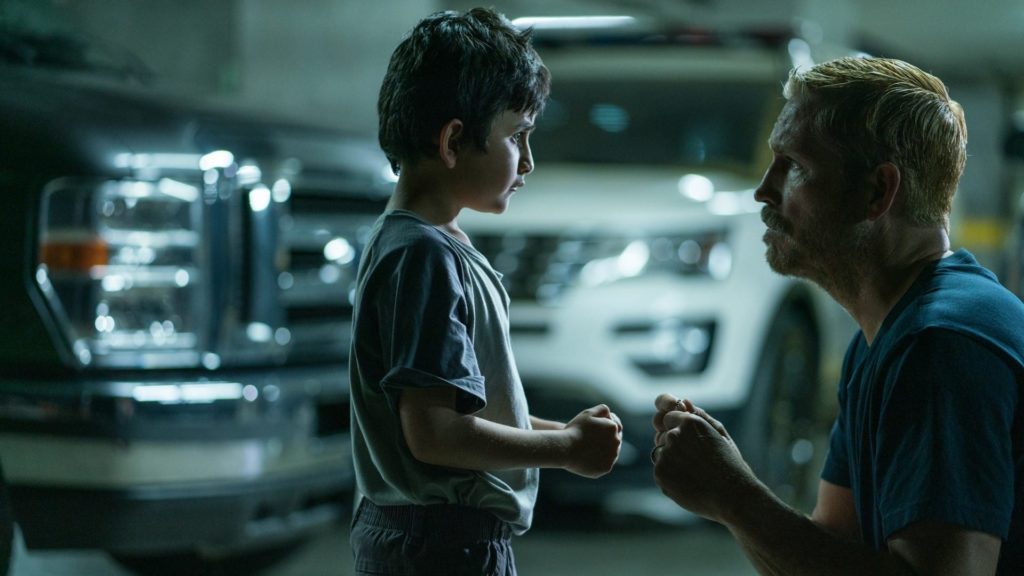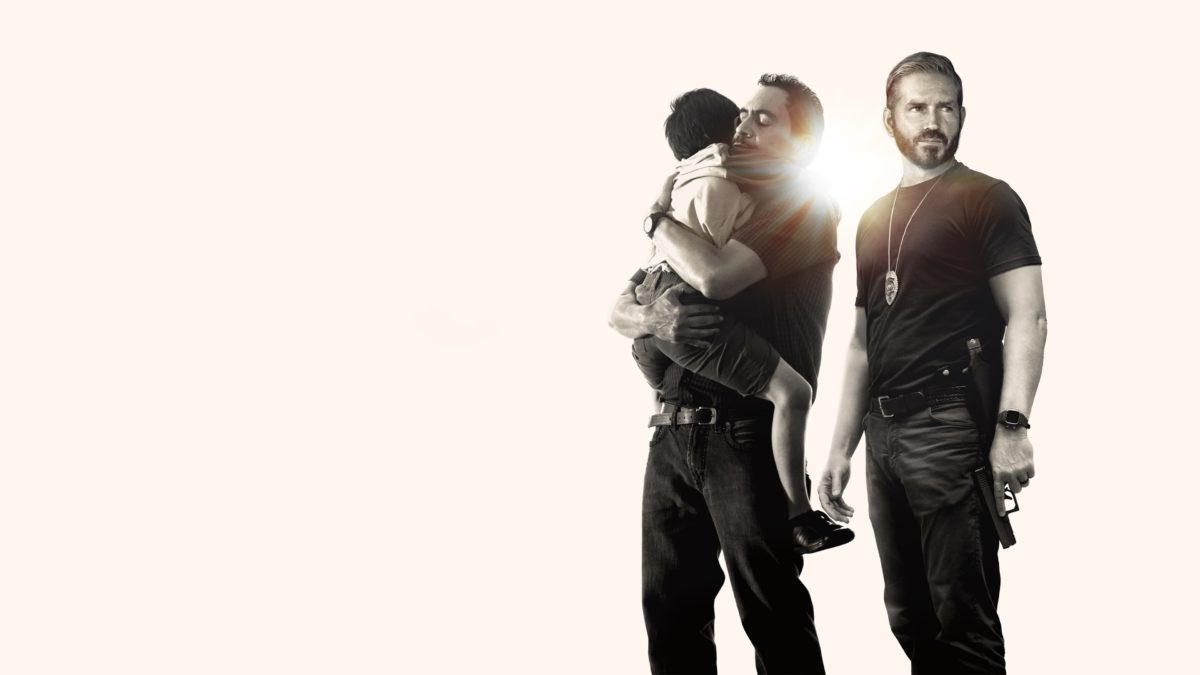You gotta give for what you take
On the one hand, Sound of Freedom isn’t worth the fuss. It’s a generic drama-thriller about a heroic man rescuing captured children. Its story is so boilerplate, its heroes and villains so vanilla, that you could find a facsimile on CBS any prime time weeknight. If you came into it completely blind, a few bits of dialogue might raise your eyebrows, but you’d probably see it as an unremarkable narrative with replacement-level filmmaking.
On the other hand, context matters. Maybe I’m an idiot throwing myself into the insufferable discourse that surrounded this film. It’s designed to bait people with progressive-leaning politics and astute critical thinking (at least the former of which includes me) into saying “this movie is kinda horseshit,” then being labeled as an enabler of the child-abusing elite.
Large reams of reporting have been dedicated to how the film is rife with falsehoods. I don’t usually mind this, but Sound of Freedom boasts in big letters at the start of the film that it is a true story. Its truthfulness is its mission. And it’s not just the dubious veracity of the story that’s problematic, but the impetus and voices behind those lies: the cast and crew of the film is made up mostly of far-right instigators. The film has several connections to QAnon, both in narrative parallels to the conspiracy theory (e.g. a widespread child abuse ring) and the vocal support of QAnon of many of the people behind the film. It makes me inclined to see the worst in Sound of Freedom. My radar for political and conspiratorial derangement was always on, and I never once gave it the benefit of the doubt I might another film of its approximate budget, genre, and production.

But again, all of that burden is on the shoulders of a film that’s awfully generic. The basic outline: Homeland Security agent Tim Ballard (Jim Caviezel) is one of the best at busting child porn distribution rings, but he feels it isn’t enough. He wants to rescue actual child victims of human sexual trafficking. In particular, one of his investigations intertwines with the fate of an abducted Honduran girl Rocio (Cristal Aparicio), whom he makes it his mission to save (“God’s children are not for sale” he boldly proclaims in a line designed for trailers).
After the intro, the film breaks into three chapters: First, Ballard’s rescue of Rocio’s brother, Miguel (Lucás Ávila). Second, Ballard’s coordination of a massive sting in Colombia that saves over 50 kids. Third, Ballard’s jungle-bound rescue of Rocio herself, which also allows him to take down one of the Marxist leaders of a cocaine-producing Colombian rebel army (FARC).
Anything politically loony is on the fringes of the film and the type of stuff I wouldn’t think twice about in most genre fare. It only stands out given the context of the film: The opening suggests that Homeland Security doesn’t care about trafficking victims unless rank-and-file heroes stand up to bureacratic leaders. Some on-screen TV and newspaper headlines imply a group of wealthy American elites don’t just condone but participate in the child sex trafficking. And the final act is built on the idea that anti-fascist rebels are drug-dealing, violent, animalistic pedophiles.

The closing title cards reiterate the factuality of the movie we just saw (preposterous) and declare Ballard is responsible for Congress passing anti-human trafficking laws in the years since, as if Sound of Freedom 2 would be a Mr. Smith Goes to Washington-type story. The film-ending text also states more people live in slavery today than anytime in history, which is sadly true, though the vast majority of that comes in the form of exploited labor (e.g. withheld wages and abusive debt) and non-consenting marriages (e.g. poor parents marrying off their children in exchange for money) rather than sex trafficking.
There’s also a leering, exploitative angle to the film, which, to be fair, is part and parcel of vigilante justice stories. But the way Ballard so easily and frequently befriends pedophiles while undercover and completely fixates on saving one specific girl kept giving me the willies with covetous undertones. The film leaves its darkest material to suggestion and implication (closed doors and zoom-outs), which is how it earned a PG-13 rating, but I still felt gross and manipulated as I watched. (This is a big reason I try to avoid exploitation and revenge films in general.)
The biggest problem with the movie, though, is that it’s dull. It’s structured as a revenge action flick, but its content is a high-budget episode of Law & Order: SVU, not Taken. Most of the film is people making arrangements. There is exactly one real action scene, and it’s shot in an obfuscated, flickery way so that it has no martial quality or kinetic energy to it. A real piece of genre filmmaking would have significantly more ass-kicking.

The film is not absent strengths. In particular I was mesmerized by Caviezel’s performance: He has that scary, blistering intensity that I associate with Sean Penn. It’s not hard at all to imagine a much more muscular version of this film built around Caviezel’s intimidation which could have been genuinely entertaining. Some of the supporting cast is strong, too: Bill Camp in particular is engaging as “Vampiro,” a vigilante former cartel accountant who allies with Ballard. The movie picks up a little when Vampiro joins the fray in the middle act.
When you see my rating below, know that I marked it one notch down for all the baggage. That is to say: I didn’t especially like this movie in a vacuum, and I certainly didn’t like it with its full context. But it’s not because of the brain-melting, idiot-baiting political discourse that I disliked it. Sound of Freedom just isn’t worth the noise one way or the other.
Is It Good?
Not Good (2/8)
Dan is the founder and head critic of The Goods. Follow Dan on Letterboxd. Join the Discord for updates and discussion.


5 replies on “Sound of Freedom (2023)”
This isn’t really that germane, but I earnestly wish Run Hide Fight wasn’t a Daily Wire joint (for lots of reasons, including the presumption that the cast-off crew who made Run Hide Fight isn’t equivalent in talent to their Real Hollywood counterparts), because I’m at least curious how Die Hard In a School Shooting could be approached as a concept.
Oh, and as for germane comments, I was wondering if I needed to give this a look based on its “industrial importance” but I’m increasingly of the opinion that its “success” was heavily, heavily astroturfed, and I’ve seen evidence to that effect though, in this world, who the hell knows. It does seem likely (really, it made that much?), even if it does seem kind of insane to me, spending millions of dollars for a very brief propaganda coup amounting to little more than a coffee table for left-liberals to stub their toe on–spending more millions of dollars on a cool and nominally-apolitical action movie seems wiser!–but that’s why I’m not a Republican operator, I guess.
Haven’t seen this, so my primary objection concerns the lack of a ‘the’ in the title. I don’t understand how ‘Sound of Freedom’ makes more sense or sounds better than ‘The Sound of Freedom.’
This sort of thing irrationally bothers me. The prime example is ‘Sweet Smell of Success.’ Terrific movie, but the title sounds so clunky without the article. I’ve even noticed that reviews often refer to it as ‘The Sweet Smell of Success,’ because why wouldn’t you? “The sweet smell of success” is a thing. Sweet smell of success is just an incomplete phrase. Why do movies do this?
Look, sometimes you gotta add the ‘the.’ It’s cleaner.
What about when the “the” is used to differentiate sequels/reboots:
Batman (1989)
The Batman (2022)
The Fast and the Furious (2001)
Fast & Furious (2009)
(this one also going from “and” to “&”)
Final Destination (2000)
The Final Destination (2009)
Oh that’s grossly lazy and lame. How could you be a writer and not want to come up with a distinct title for your movie? Why would you want to create something that will so easily be confused for a different product?